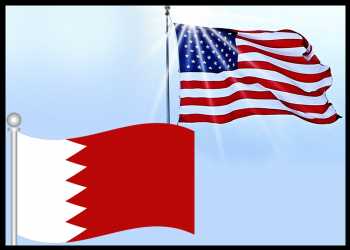
US Signs Defense, Security, Trade Deal With Bahrain
September 14, 2023The United States and Bahrain have signed the Comprehensive Security Integration and Prosperity Agreement, or C-SIPA, a new framework to promote cooperation across a range of areas, from defense and security to science, technology, trade and investment between the two allies.
The deal, signed by US Secretary Of State Antony Blinken and Bahrain’s Crown Prince/Prime Minister Salman bin Hamad Al Khalifa at the State Department, can serve as a cornerstone for cooperation among a broader grouping of countries in the Middle East region with respect to deterrence, diplomacy, security and economic integration, and de-escalation of conflicts.
The Crown Prince’s visit to Washington is the culmination of nearly a year’s diplomatic engagement, including multiple trips to Manama by senior U.S. officials, and follows on his meeting with Vice President Kamala Harris during his U.S. visit last year.
After two decades of major conflicts, the Middle East region is comparatively more peaceful and secure, and the two sides aim to take advantage of the changed atmosphere with their partnership under C-SIPA.
The White House said that the agreement will deliver on that goal by enhancing deterrence, including through expanded defense and security cooperation, interoperability, and mutual intelligence capacity-building.
C-SIPA will help formalize steps being taken by U.S. Central Command to integrate the region’s air and missile defense systems and increase maritime domain awareness.
It aims to promote cooperation on trade and investment, building on the existing U.S.-Bahrain Free Trade Agreement.
The pact envisages encouraging investments in global supply chain resilience and infrastructure.
Last year, Bahrain had created a U.S. trade zone where American companies can develop new products, reach untapped markets, adding to supply chain resiliency.
C-SIPA is the first binding U.S. international agreement of its kind to promote cooperation in developing and deploying trusted technologies.
It features concrete clauses to further strengthen the security of the two countries and stability in the Middle East, and to deter threats against them.
The two sides have agreed to meet on a regular basis on ways to further integrate air and missile defense capabilities, special operations forces, intelligence capacity, cyber security, strategic communication, and mutual awareness of emerging threats.
It includes training and military education programs, provision of defense articles and services, and combined military maneuvers and exercises.
Bahrain is one of the United States’ longest and closest partners in the Middle East. The gulf nation is host to the U.S. Navy’s Fifth Fleet, and a Major Non-NATO Ally.
Source: Read Full Article


